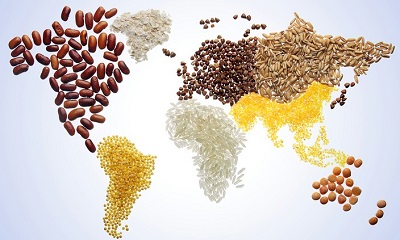
‘Minimum Wage’ – Not yet a good idea for current economic status

By Haikali Ndatulumukwa
Its such a honour that our leaders really care about their people, especially by not just maximizing the social utility but seeking for strategical initiatives to make sure every worker is getting what they deserve.
However, given the current economy crisis status of Namibia, the minimum wage will have bad impacts on the economy. A minimum wage is a legal minimum for workers. It means workers are guaranteed a certain hourly pay helping to reduce relative poverty. However, a minimum wage could have potential disadvantages.
It can disrupt the economic system
Considering the demand and supply where the economy is at equilibrium, minimum wage functions similarly to a price floor. Imposing a higher wage level than the equilibrium would disrupt the price mechanism, which means that the market will not be able to clear, seeing workers not being able to find work. As a result, non-price competition, such as worker’s personal connection, experience or age, would supersede the price competition, which makes it more difficult for unskilled and younger individuals to find work. This just means that a minimum wage policy will have side effects that can cause a lot of damage to the labour market.
Cost Push Inflation
The minimum wage can cause cost push inflation. This is because firms face an increase in costs which are likely to be passed on to consumers. This is even more likely if wage differentials are maintained.
It can hurt the poor
Proponents of increasing minimum wage often say that it is difficult to support a family with the only breadwinner earning such minimum salary. However, for a minimum wage increase to help such an individual earn money for his or her family, he must have a job and try to increase it. Also, increases in the minimum wage will actually redistribute income among poor families, where some are given higher wages and others are put out of work.
It can create unemployment
If labour markets are competitive a minimum wage could cause unemployment because firms will demand less labour, and higher wages may encourage more workers to supply their labour.
Firms in labour intensive industries will be most affected. For example, hairdressers and cleaning companies will see a proportionately bigger increase in their wage bill.
In a free labour market, salary rates would reflect the willingness of employers to hire them and the willingness of workers to work. As you can see, individual productivity is the primary determinant of what employers are willing to pay, and most of the people who are working are not directly affected by minimum wage, as their productivity, as well as pay, are already well above it. Now, because legislated increases in labour costs do not increase worker productivity, some labourers would lose their jobs, especially those who are the least productive.
It does not offer personal-growth opportunities
Most people who are working on low wages are usually those who do not have fully developed skill sets. However, they also need to work to support their needs, especially when they have families to take care of, leaving them no choice but to work even for a minimum fee. What’s worse, some of them are being tasked to perform labour-intensive work and do not have much of an opportunity to develop their skills to get a better job. Sad to say, there are employers who would not spend for training, knowing that they can hire people who can perform specified tasks without it.
While I think the underlying policy is problematic, I think we should always debate ways to help improve the standard of living of Namibians. Instead of focusing on this sort of defeatist mentality where we’ve gotta up the minimum wage, why don’t we focus on creating better-paying jobs? Or focusing on helping the firms to create more jobs for our people?













































